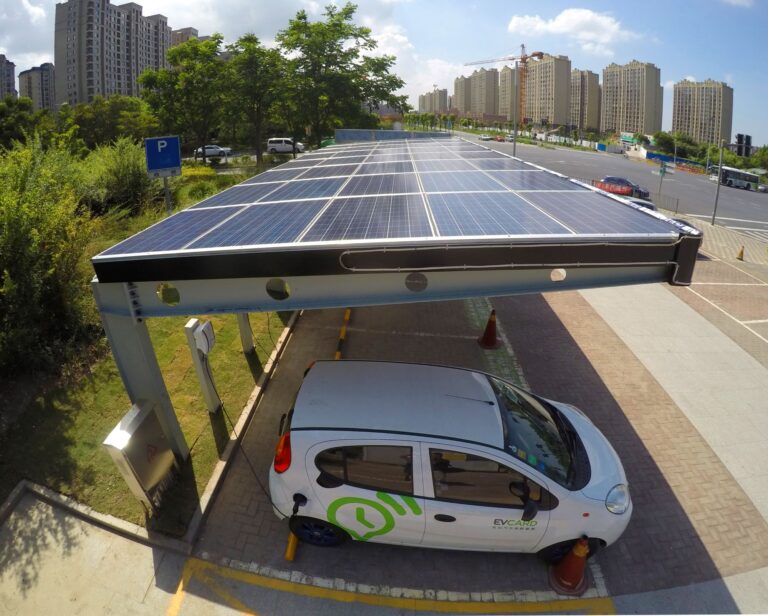Overview of the Global, Israeli and Local Energy Sector – Trends, Challenges and Opportunities for the Sharon–Carmel Cities Association
The way energy sources are produced, supplied, and utilized for electricity generation, transportation, and heat production has far-reaching effects on the economy, society, and the environment, at global, national, and local levels. National objectives for electricity generation and fuels vary due to global and local shifts in the energy market, affecting energy production and supply locally, as well as its environmental impacts.
The Samuel Neaman Institute at the Technion has addressed the future of the energy sector in Israel, focusing specifically on the Sharon-Carmel municipal association, to examine the challenges and opportunities in this area. This document reviews trends in the short term (up to 2030), medium term (up to 2040), and long term (up to 2050), with varying levels of certainty. As the time frame extends, the level of uncertainty increases.
The forecast for 2050 indicates a global trend towards a transition from energy supply to electricity generation, whereby the combined percentage of electricity and hydrogen production in the energy mix is expected to triple its current value, reaching 30% of the mix by 2030 and 50% of the energy sources by 2050.
To meet the forecasts for 2050, both nationally and locally, the following are required:
- Significant improvement in the pace of establishing renewable energy facilities and meeting short-term objectives (2030).
- Innovation and the invention of suitable substitutes for raw materials such as copper, cobalt, and manganese, as part of future technological development. This is in response to the anticipated scarcity due to the increasing demand for mineral extraction for energy, particularly solar and storage infrastructures.
- Development of additional energy sources, such as hydrogen and electricity storage, to provide temporary and periodic energy supply. Hydrogen also serves as a means for energy storage and transport in industries requiring heat.
- Jet fuel for aviation will pose a challenge and be a central factor in the development of alternative technologies in the future and the transition to low-carbon energy. Jet fuel can be produced from petroleum or condensates released during gas extraction processes, as is currently done, or alternatively through the gasification or hydrolysis of an alternative feedstock not sourced from minerals and produced in a low-carbon process.
Municipal and regional authorities worldwide are key players in addressing the climate crisis and often lead initiatives for reducing greenhouse gas emissions and transitioning to renewable energies. In Israel, this trend is still in its infancy. Accelerating the transition to a renewable energy-based economy necessitates recognizing local authorities as key partners in the process and providing them with knowledge, authority, standards, and budgets to promote renewable energy production and storage within their jurisdictions.
The main challenges facing the Sharon-Carmel municipal association in the energy sector include:
- Continued reliance on coal at the Orot Rabin power plant (Units 1-4 were supposed to cease operations by June 2022).
- Increasing production, export, and local use of fossil gas, primarily from the Leviathan reservoir. This can also accelerate the end of coal use.
- Issues related to the storage of fuels and derivatives within the municipal area, as plans progress to vacate the Haifa refinery complex.
Opportunities for the Sharon-Carmel area in the evolving energy landscape to reduce coal and fossil gas use include recommendations for both the short and long term in areas of enforcement, collaboration, encouragement, and regulation, as detailed below.
| Area | Short Term: Emission Reduction | Long Term: Sustainable Development |
| Electricity Generation | Enforce efficient and clean electricity generation, both from fossil fuels and renewable sources, such as electricity generation from non-recyclable waste. Additionally, work on carbon capture and emissions. | Encourage, establish, and enable renewable energy facilities and storage and hydrogen solutions, and create a regional “sandbox” for energy innovation. |
| Energy Efficiency | Enforce energy efficiency that reduces the use of fossil fuels and energy conversions in industry, buildings, and transportation. | Promote green building practices throughout the supply chain to minimize operational energy use (e.g., insulation to reduce heating and cooling). |
| Industry | Legislate municipal laws to enforce sustainable and low-emission industry, transition to clean energy, and implement external cost treatment on the producer. | Encourage the establishment of sustainable industries, carbon capture in high-emission factories, and its use for energy production. |
| Transportation | Enforce the entry of low-emission vehicles and hazardous materials-free vehicles within the jurisdiction and promote low-emission public transportation, while establishing charging facilities for electric vehicles and hydrogen for trucks. | Encourage initiatives for producing green fuel for land, marine, and aviation transportation due to the expected expansion of the airport in Haifa, development of the maritime port, and so on. |












